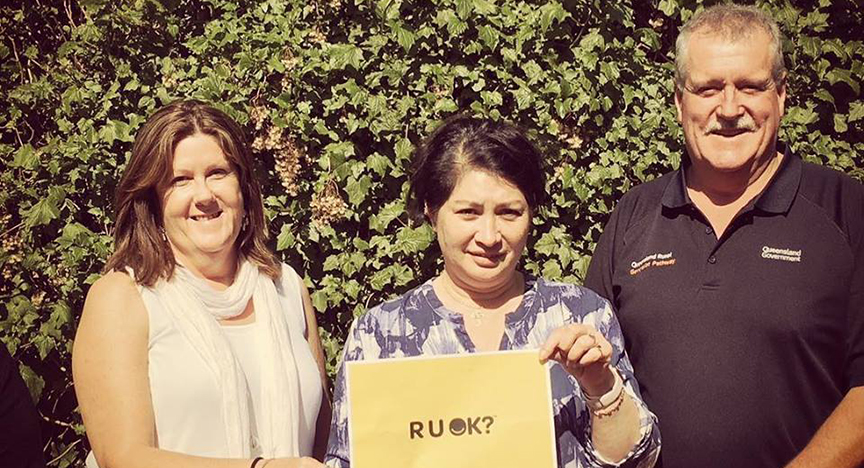
Rural Generalist practice is rewarding and varied practice, but the nature of the work and the rural/remote context is not without its challenges. In recognition of national R U OK? Day for suicide prevention we asked Dr Ebonney van der Meer (Mental Health AST, Cooktown) to give us her thoughts on some of the key factors to maintaining wellbeing as a Rural Generalist.
Find your network
Seek out and foster personal and professional relationships. Be a support for colleagues. Human connection is important for everyone’s mental health.
Scheduling
Book your holidays in advance. Find something you are interested in and make time to pursue it. Get involved in your community. Be sure to schedule in some “just do nothing” time to give your brain a break.
Boundaries
Whether it be saying no to certain commitments, putting limits on your workload, leaving on time or ensuring you take a lunch break, boundaries are important. Work out what matters most, be open to upfront discussion and review on a regular basis.
The little things
It sounds simple but making sure you know what you like (eg. good coffee) and how to access it wherever you are can make a big difference. Online shopping is a great way to ensure you can enjoy these things if they aren’t available locally.
Flexibility to achieve balance
Whether it be part-time/full-time/mixed practice/clinical/non-clinical – negotiating a working agreement that not only meets workforce needs but also your (and your family’s) needs can make a world of difference to how you feel and your productivity at work. Have the conversation early if you feel you need to adjust your working arrangements to achieve a better work-life balance.
Looking after yourself
In a town full of colleagues, it is important that you find your own GP (either in your town or somewhere else) and engage in regular preventative health assessments, including mental health screening. Reflect upon the ingredients for a healthy mind and make them part of your regular routine.
Know where to get help if you need it
If you or someone you know needs help a great place to start is your GP. Beyond Blue offers a 24-hour phone service and have a wealth of information (including self-test questionnaires) on their website. The Doctors Health Advisory Service and Australasian doctors’ health network offer a similar service specific to doctors and Queensland Health offers an Employee Assistance Service.